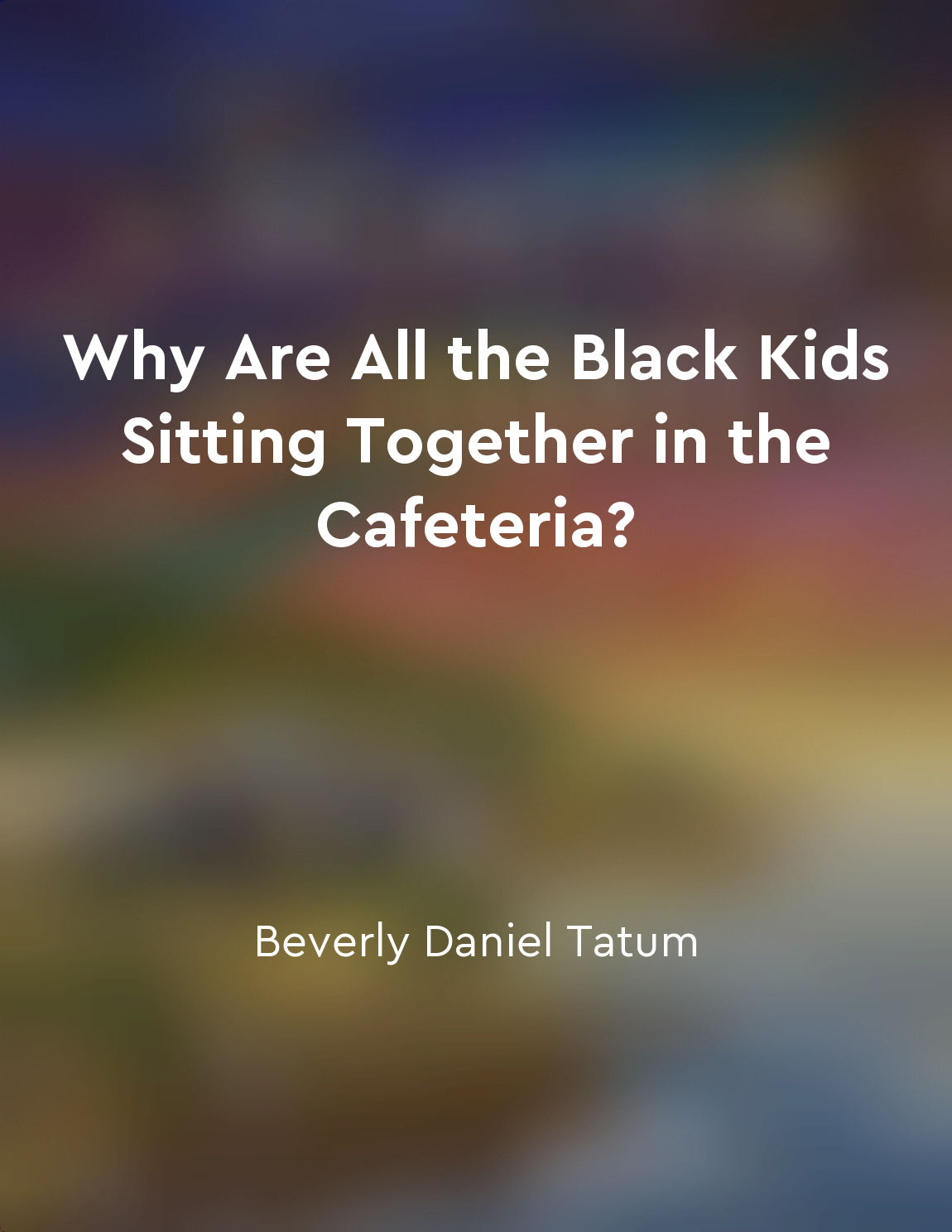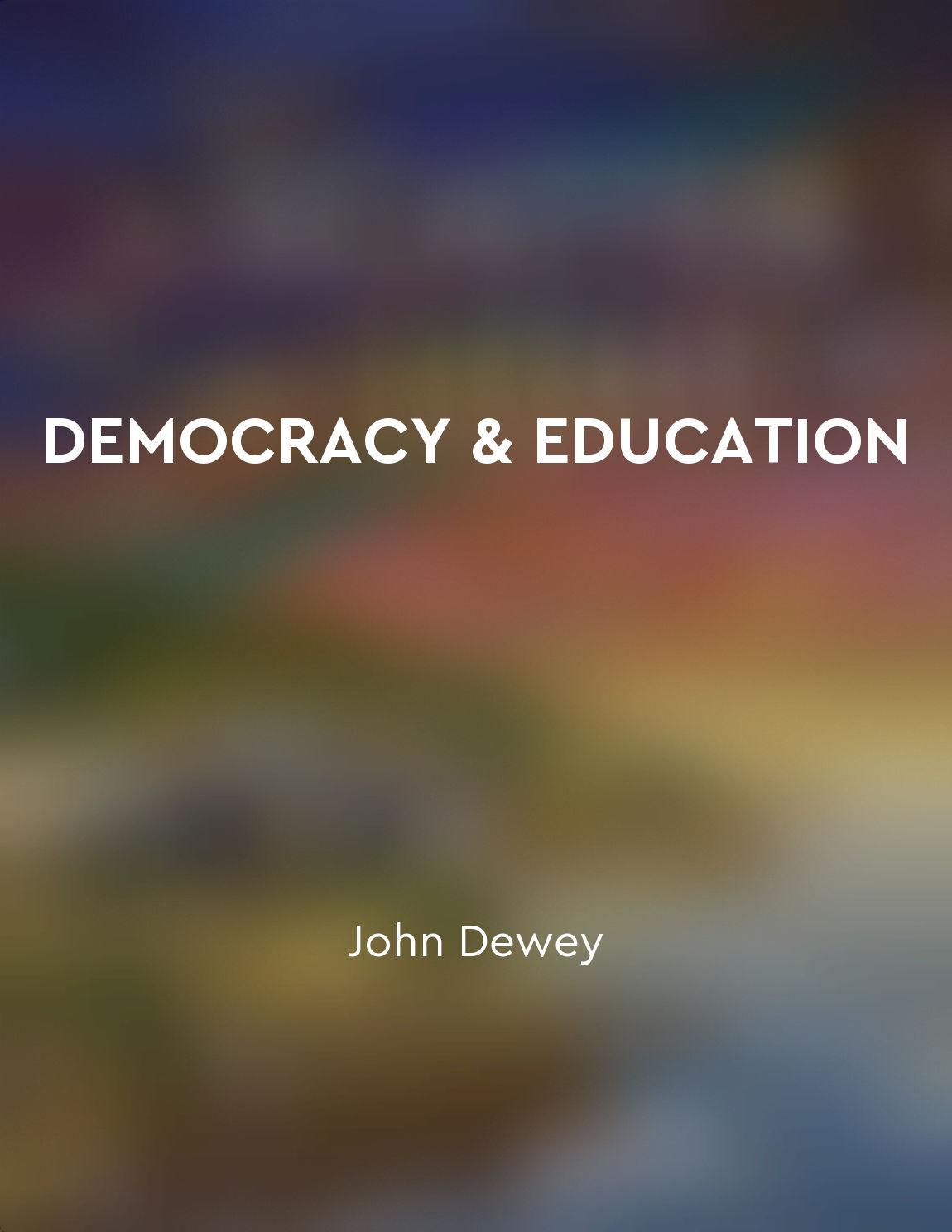Schools should teach students to be active citizens from "summary" of DEMOCRACY & EDUCATION by John Dewey
One of the fundamental purposes of education is to prepare individuals to actively participate in democratic society. This means that schools should not only focus on academic subjects, but also on teaching students how to be engaged and informed citizens. In order to achieve this goal, students need to learn about their rights and responsibilities as citizens, as well as how the democratic system works. Students should be encouraged to think critically about issues facing their community and society as a whole. This involves developing the ability to gather information, analyze different perspectives, and form well-reasoned opinions. By engaging in debates and discussions, students can learn how to communicate their ideas effectively and respectfully, even when they disagree with others. In addition to critical thinking skills, students also need to develop empathy and a sense of social responsibility. This involves understanding the experiences and perspectives of others, as well as recognizing the importance of working together to address social problems. By participating in community service projects or advocacy campaigns, students can learn how to make a positive impact on the world around them. Furthermore, schools should provide opportunities for students to practice democratic decision-making and problem-solving. This can involve organizing student councils, conducting mock elections, or participating in collaborative projects. By experiencing the democratic process firsthand, students can develop the skills and confidence needed to become active participants in society.- The concept of teaching students to be active citizens is about more than just memorizing facts and figures. It is about empowering individuals to think critically, engage with others respectfully, and take action to create positive change. By incorporating these principles into the curriculum, schools can help prepare students to become informed, responsible, and active members of their communities.
Similar Posts
Intellectual growth through reading
The act of reading is not merely a passive activity, but a transformative experience that has the power to shape our intellect ...
Democracy offers a vision of hope and progress
Democracy is not just a political system; it is a vision that holds the promise of hope and progress for societies. It is a way...
Democracy is in crisis
In our contemporary moment, democracy finds itself in a state of disarray and decay. The very foundations of this precious syst...
Each nation has its own heroes, myths, and legends
Within the pages of 'American Nations', the idea that each nation possesses its unique heroes, myths, and legends is a recurrin...
Tocqueville considers the influence of education on democracy
Tocqueville emphasizes the critical role of education in shaping a democratic society. He believes that education plays a vital...

Intersectionality shapes individual experiences
Intersectionality shapes individual experiences by recognizing that people's identities are not made up of just one aspect, but...
The decline in bowling leagues is a symptom of larger social trends
The dwindling numbers of participants in bowling leagues across America reflect a broader shift in society. This decline is not...

Genetic engineering challenges ethical boundaries
Genetic engineering is a powerful tool that has the potential to revolutionize humanity in unimaginable ways. With this technol...
Connecting with neighbors is crucial for community bonding
In the bonds of social connectedness, neighbors play a critical role. The relationships formed within a neighborhood are the bu...
Government should aim for the common good
The primary purpose of government is to promote and secure the common good of society. This involves the well-being and flouris...


